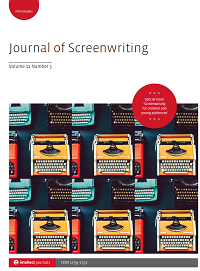
Full text loading...
 , Feras M. Alwaraydat1
, Feras M. Alwaraydat1
Parts 1 and 2 of the Arab Jordanian series Rās Ghlaiṣ (‘The head of Ghlaiṣ’) (2006–08), written by Jordanian screenwriter Muṣṭafā Ṣāliḥ and directed by Aḥmad D‘aibis and Sha‘lān al-Dabbās, share three ‘common denominators’, in Haun Saussy’s terminology, with Christopher Marlowe’s Tamburlaine the Great, Parts 1 and 2 (1587): (1) the shepherd character as a monstrous despot, (2) pastoral love of the shepherds and (3) the mobilization of nations/tribes to take revenge against Tamburlaine/Ghlaiṣ. Ṣāliḥ’s delineation of the nomadic hero Ghlaiṣ is similar to the Marlovian model of Tamburlaine in a time of war and love. Ghlaiṣ, as an Arab Jordanian Tamburlaine, seeks in a Machiavellian manner an ultimate rule and control over all nomadic tribes in the Jordanian desert and behaves as a monstrous lover. This article takes two pieces of literature from two different cultures as an example of the adaptability of screen narrative to the scope of comparative literature and appropriation studies, showing simultaneously the experience of Jordanian screenwriters as one example of what Craig Batty calls the ‘screenwriting turn’ (2014: 1). Both Marlowe and Ṣāliḥ dramatize the shepherd despots to warn against the threat of colonial and imperial ambitions and models.

Article metrics loading...

Full text loading...
References


Publication Date:
https://doi.org/10.1386/josc_00092_1 Published content will be available immediately after check-out or when it is released in case of a pre-order. Please make sure to be logged in to see all available purchase options.